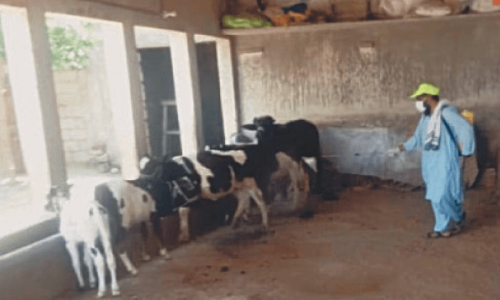ISLAMABAD, May 6: Calling for declaring an “education emergency”, the United Nations Educational, Scientific and Cultural Organisation (Unesco) has said Pakistan may not succeed in achieving Education for All (EFA) goals by 2015.
“I sincerely wish Pakistan achieves the EFA goals but it may not be possible because of the ongoing circumstances,” Dr Kozue Kay Nagata, Unesco’s representative to Pakistan, told Dawn. For her, Pakistan is making progress on EFA targets but these efforts are still less than other South Asian countries with similar GDP per capita, “such as Bangladesh, Sri Lanka, and even Maldives”.
Pakistan became a signatory to EFAs in 2000 in Dakar, Senegal.
The EFA 2015 goals include expanding Early Childhood Care and Education (ECCE), providing free and compulsory primary education for all, promoting learning and life skills for young people and adults, increasing literacy rate by 50 per cent, eliminating gender disparities in primary and secondary education by 2005 and gender equality by 2015, besides improving the quality of education. Pakistan had missed the 2005 target of eliminating gender disparity.
Dr Nagata said the dropout ratio of schoolchildren was higher in Pakistan, adding that it was mainly due to the persisting poverty and the lack of quality education. According to official figures released by the education ministry in 2005, the dropout ratio was more than 30 per cent.
“If you want to improve school dropouts, you have to update the curricula to meet the 21st century’s socio-economic needs, and improve learning conditions in schools. The gender gap must be eliminated,” said the Unesco’s newly-appointed director.
“If the government is looking to meet the EFA by 2015 it has to declare an education emergency,” said Arshad Saeed Khan, Unesco’s education specialist. “Increase budget for education sector, improve management and governance of education, and de-politicise appointments and transfers at all levels.”
Mr Arshad asserted that political will was required to launch a movement for mobilising the society to meet the EFA targets.
Pointing towards China, Cuba and Sri Lanka, he said these countries through political will achieved their targets quickly.
He said the 18th amendment’s article 25 (a) “necessitates increasing the budget for education. But the question is if all provinces are willing to increase the budget. Some provinces may not be able to invest on education.”
The article makes secondary education for five to 16 years of children compulsory and free for all.
The official pointed out that since the provinces might be developing their own curricula, there may be no ‘harmonisation’ among them. Because of the devolution, he said there would be no national plan for education as provinces may have different directions for education.—Imran Ali Teepu













































Dear visitor, the comments section is undergoing an overhaul and will return soon.